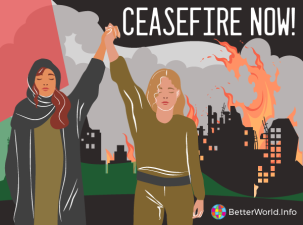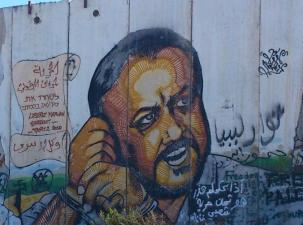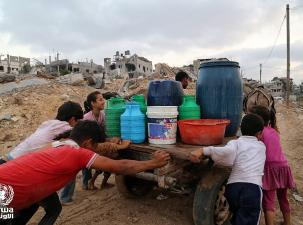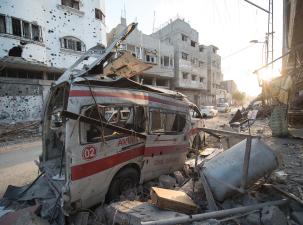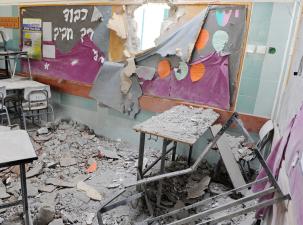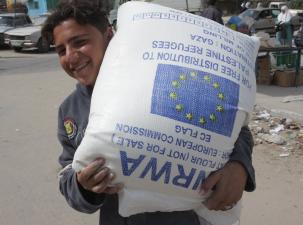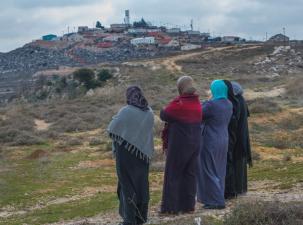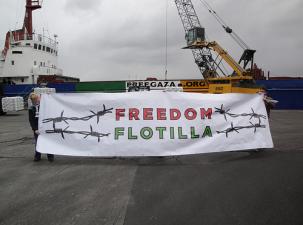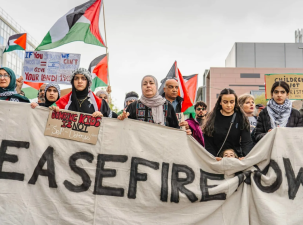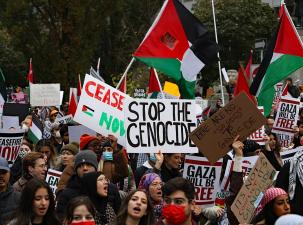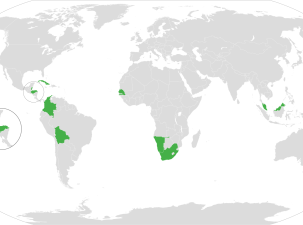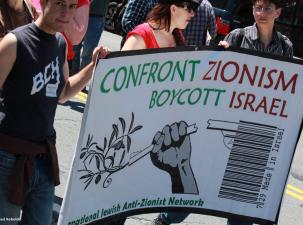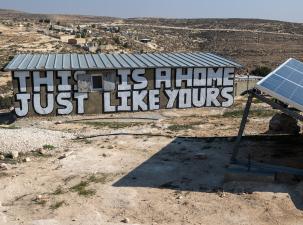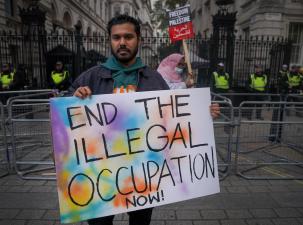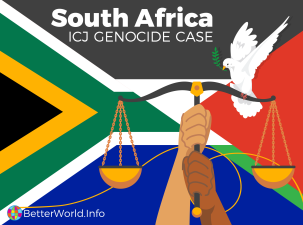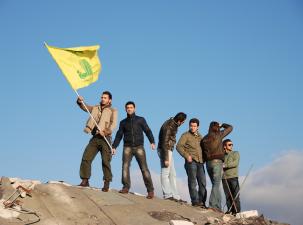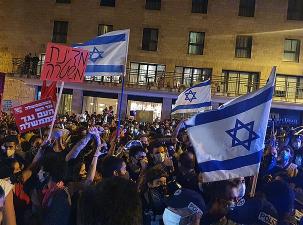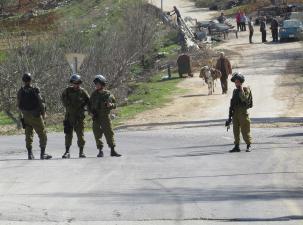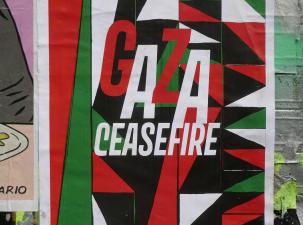ISRAEL & Palestine
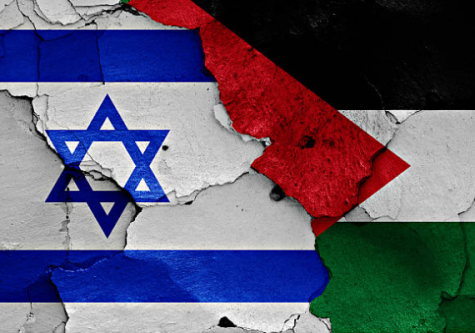
Conflict Hot Spot: Israel and Palestine – Critical Guide
The Israeli-Palestinian conflict dates back more than six decades. The complex history of the region, entangled with the struggle for land rights and self-determination has caused generations of human suffering, despair, and a never-ending cycle of violence.
Key issues include the Israeli occupation of the West Bank and Gaza, the status of Jerusalem, Israeli settlements, Palestinian food security and access to water, and the Palestinian right of return.
Jump straight to Better World Info’s excellent guides on:
➡️ Israel – Palestine conflict
Reliable news sources, the peace process, the BDS movement, and key background information
➡️ The Gaza War
25,000 resources on the Israeli ground offensive and end game, the Gaza humanitarian crisis and blockade, Israeli war crimes and genocide accusations, ICJ and ICC involvement, and the risks of a wider regional war
️➡️ Human rights abuses
Jewish settlements in the occupied territories, illegal land grabs, occupation by the Israel army, the siege on Gaza, Palestinian refugees, al Nakba, the apartheid wall, West Bank annexation, and human rights organisations
➡️ Israel Politics
Ultra right-wing governance, Netanyahu accountability, U.S. funding of the Israeli military, key political players, media bias, and the 2023 judicial crisis
*********
To the despair and horror of the world, the Middle East is yet again under the grips of war. On October 7th 2023 Israel was shaken as the radical Islamist military organisation Hamas, officially known as the Islamic Resistance Movement, carried out a large-scale military attack against Israel. 1,139 people, mostly civilians, lost their lives - it was the deadliest attack against Jews since the Holocaust.
Nonstop airstrikes battered Gaza with no regard for civilians or vital infrastructure including schools and hospitals. Until September 2025, well over 66,000 Palestinian lives have been lost by direct strikes alone (OCHA, UN), 72% were women and children and 90% were civilians (CommonDreams).
Despite the known consequences of further escalation and a spiralling humanitarian crisis, Israel's Western allies have declared their support and offered unabated military assistance. The terror attack by Hamas has emboldened other extremists on both sides, whose first answer is always violence. All signs are pointing to a long, bloody, and far-reaching conflict which is already having international ramifications. Time and time again we have seen that war never brings peace. There are no winners, but the losers are always civilians.
This comprehensive platform to the Israel-Palestine conflict provides 25,000 resources including key background information, essential news portals, previous deadly clashes, the potential for peace, and the human rights situation in both Israel and Palestine. Learn about the involvement of Iran backed militant group Hezbollah, U.S. relations with Israel, and other international reactions.
German speakers should visit our partner site Bessere Welt Info for over 2,000 resources on the decades long conflict between Israel & Palästina from a European perspective, including the ongoing Gaza War.
*****
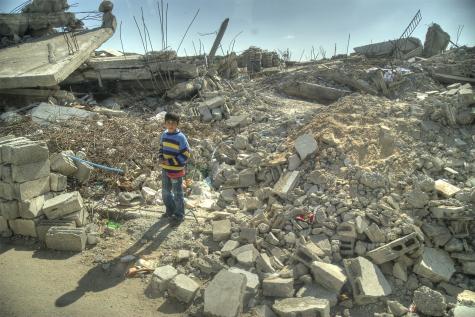
History of the Israel and Palestine Conflict
Conflict in the region began with various territorial claims of the area which is of great historical and religious importance for Muslims, Jews, and Christians. The contested land is home to several holy sites including the Temple of Solomon, Golgotha, the Mosque al-Aqsa, and the Dome of the Rock - all of which are situated within the walls of Jerusalem. Both Israelis and Palestinians claim the ancient city as their capital.
Jewish people settled in Palestine in the early 1900’s after the British promotion of the Zionist movement, the region at the time was known as the Ottoman Empire. Settlers bought land, established communities, and the religion of Judaism began to spread. During and after World War II, Nazi persecution and the Holocaust led to the mass migration of Jews to Palestinian land where conflicts between Palestinian Arabs and Jewish migrants began to arise.
In 1947 in an attempt to ease tensions, the United Nations decided to divide the area and create two states, one Jewish and one Arab. The State of Israel was founded in 1948. Its creation led to the forced displacement of many Palestinians in recognised as the Nakba. Palestinian Arabs and the neighbouring Arab countries fiercely rejected this solution, and as a result the first Israeli-Arab war erupted the same year. Backed by foreign powers, Israel dominated and went on to divide the territories into three separate regions - Israel, the West Bank, and the Gaza Strip.
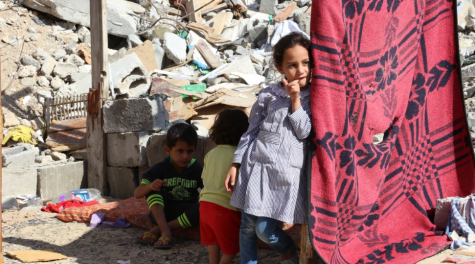
Palestinians became confined to the West Bank and the Gaza Strip - some of the most densely populated areas on the planet. The Gaza Strip with a population of 2 million people, consists of only a 140 square mile strip of land along the Mediterranean Sea. The West Bank is a 2,200 square mile of landlocked drought vulnerable land and is home to 3 million.
Both regions suffer from lack of access to clean water, poor quality agricultural land, heavy contamination, food insecurity, overcrowded refugee camps, limited access to healthcare, and regular power cuts.
The 1967 Six-Day War was the start of decades long Israeli occupation of these Palestinian territories and led to the creation of even more Palestinian refugees. These land grabs and Jewish settlements have expanded in size and number over the years resulting in violence, destruction, and the serious violation of Palestinian rights. The UN and the wider international community condemn these settlements in what is illegal occupation of Palestinian land breaking a number of international laws.
The first Palestinian uprising lasted from 1987 to 1993. Palestinians fought for self-determination, and it led to the signing of the Oslo accords. This agreement called for regional cooperation and increased international aid to support those struggling in the entire region.
There was a second intifada from 2000 to 2005 which saw Palestine gain autonomous control of both the West Bank and Gaza. Israel uprooted its settlements and disengaged. However, troubles began again in 2006 after the militant group Hamas were elected to control the Gaza Strip. Israel responded by once again imposing a strict blockade on the whole region and of course the innocent civilians living there.
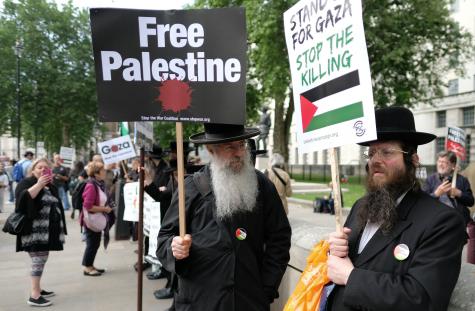
Human Rights Violations in the Israel-Palestine Conflict
The Gaza Strip has been under a blockade imposed by Israel and Egypt since 2005. This means that the movement of goods and people in the West Bank and the Gaza strip are severely restricted by a complex series of checkpoints and regulations. These restrictions are arbitrary and severely disrupt Palestinians' daily lives.
As a result, most Gazans are forced to rely on humanitarian aid for their survival.
- One million Palestinians in Gaza do not have enough food to feed their families
- Almost half the working aged population are unemployed
- 96% of water is undrinkable
- Electricity supply is reduced to between 4-8 hours per day
- Children have grown up knowing only fear and destruction, almost all of them are in dire need of psychological care
According to the Israeli organization Peace Now, there are over 200 settlements and Israeli army outposts in the West Bank. Violent clashes are common between the illegally established settlements and the displaced Palestinian communities.
Further marginalisation of Palestinians is reinforced by more than 65 Israeli laws that promote racist policies. Palestinians are prevented from owning land, refugees have no right to return, and all land, property, and even bank accounts of Palestinian refugees who fled have been confiscated. There is a ban on family reunification, residency and all associated rights have been nullified, and the commemoration of Nakba is forbidden.
Half of these unjust and highly prejudiced laws have been introduced since 2000. After suffering decades of historical abuses, human rights are being further stripped from Palestinians as conditions worsen under the extreme right-wing leadership of Prime Minister Benjamin Netanyahu.
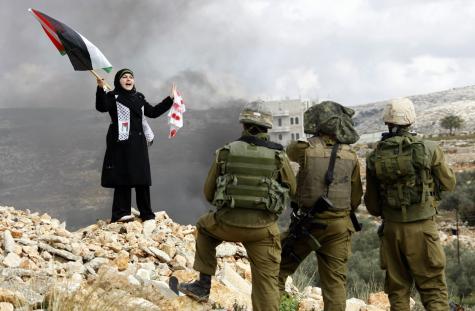
Systematic discrimination and injustices also apply to the Arab Israeli community which make up 20% Israel's population. Restrictive laws have removed the rights of Arab Israelis in some areas, including access to land and key resources. This suppression is reenforced by the long-term struggle for Arab political parties to gain governmental representation in the Knesset.
Human rights organisations play a vital role in raising international awareness of the situation, promoting the rights of marginalised citizens, and resisting the Israeli occupation. As such they have become targets for baseless attacks, forced closures, unlawful arrests, and disappearances. Human rights defenders, journalists, aid workers, and activists have been similarly silenced.
What role do Hamas, Fatah, and Hezbollah play?
Hamas is a Palestinian Islamist social, political, and militant organization which was founded in 1987 and is primarily active in the Gaza Strip. Hezbollah is a Shiite political-militant group with roots in Israel's neighbouring country Lebanon which was also founded in the 1980s. Both organizations are classified as terrorist organizations by the United States, Israel, and a host of other countries due to their involvement in extreme acts of violence and instigation of fear to further their ideologies.
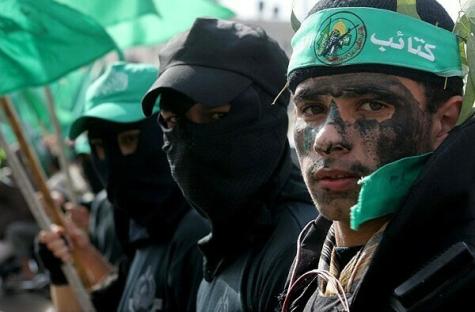
Both groups propagate the destruction of Israel, the expulsion of Jews from the Middle East, and strive for the establishment of an Islamic Palestine. They have carried out numerous attacks on Israel in the past, including suicide bombings and rocket attacks.
Hamas took control of the Gaza Strip after its electoral victory in January 2006. A civil war followed with the rival Palestinian group Fatah, who at the time exercised control over the Gaza Strip. The conflict ended with Hamas securing political and administrative control of Gaza and Fatah was largely driven out of the region.
Fatah continued its rule over the West Bank, which led to a further fracturing of the two separated Palestinian territories. This political divide continues to this day. During their rule over Gaza, Hamas have committed proven human rights violations, including repression of political opposition, rejection of free elections, and restrictions on freedom of expression.
Fatah in the West Bank has adopted a milder position on the Israeli-Palestinian conflict and has shown support for an independent Palestinian state in the Israeli-occupied territories. Fatah has in the past held negotiations with Israel in the search for a solution to this complex and multifaceted conflict.
The Palestinian Authority, which is overseen by Fatah, governs the West Bank and has self-rule there, albeit limited. Israel still exercises significant control over many aspects of daily life. Violent conflicts with illegal Israeli settlers who occupy areas in the West Bank are common. Fatah has largely held back in the current conflict, and Palestinian President Mahmoud Abbas has distanced himself from the Hamas terrorist attack.
Instability in the Middle East region is spreading as military involvement from Iran, Yemen, and Hezbollah in Lebanon has turned the risk of a wider war into a reality. Israel has attacked five different countries since October 2023. Their recent assassinations of Hamas and Hezbollah's top leaders sowed further chaos as both military groups have vowed revenge.
Prior to the attacks, both the Houthis and Hezbollah have pledged to put down arms if Israel ends its war on Gaza. However, emboldened with an endless supply of U.S. weapons, the right-wing Netanyahu government is committed to fighting all sides. Undermining all diplomatic efforts, how can mediation stand a chance if the negotiators from the other side are being assassinated? See our guide to the current Hamas-Israel war for more information.
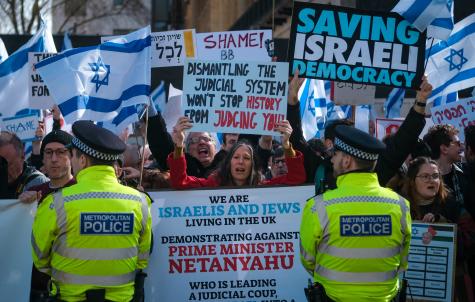
Right-wing Extremist Government in Israel
Since late 2022, under the Netanyahu government Israel has seen a dramatic shift toward the political right. For the first time in history a wide majority of the ruling coalition is made up of Orthodox or ultra-Orthodox loyalists. Only 9 of its 64 members are women.
The government is comprised of supporters for weakened human rights, further settlement expansion, discrimination, racism, homophobia, and theocracy. All aspects of society including education, policing, and the justice system are now controlled by what are essentially ultra conservative emboldened extremists.
Bezalel Smotrich the current finance minister, sees no justification for a Palestinian state and advocates the abolition of democracy in favour of a Torah-led state. The recent attempted judicial reform drew tens of thousands to the streets to protest against the decision to strip the Supreme Court of its power to stop key governmental decisions it deemed unreasonable. The reforms severely undermine the countries democracy, weaken the judicial system, and allows ministers to ignore the advice of the Attorney General.
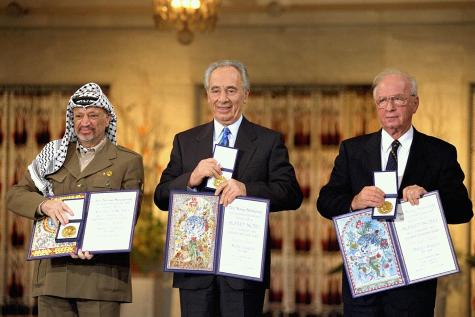
The Peace Movement in Israel and Palestine
Many attempts at securing sustainable peace between Israel and Palestine have been implemented and then ultimately failed. The first of its kind was the Oslo Peace Process of 1993 which sought to pave the way for limited Palestinian autonomy in parts of the West Bank and Gaza Strip. Both sides however felt that the agreement did not meet their expectations. Israel wanted security and Palestinians wanted an end to occupation. After a positive start, both camps perceived the other to be in violation of the agreement and process stalled.
Later in 2000, the Camp David summit attempted to build on previous negotiations by establishing an autonomy regime in the West Bank and the Gaza Strip and resolving issues between Egypt and Israel regarding the Sinai Peninsula. Leaders at the time however failed to agree on key issues such as borders, the right of return for Palestinian refugees, and control of occupied Arab East Jerusalem. Palestine eventually decided that the agreement did not go nearly far enough and so began the second intifada and a new round of violence.
The Arab Peace Initiative in 2002, or the Saudi Initiative was the next proposal to end the conflict. The agreement aimed for the normalisation of relations by the Arab world with Israel, in return for a full withdrawal by Israel from the occupied territories, a solution to the Palestinian refugee problem, and the establishment of a Palestinian state with East Jerusalem as its capital. This serious peace proposal did not get the attention it deserved from Western nations, it was embraced by the Palestinian Authority, however the Israeli government outright rejected it.
The next attempt at negotiations came in 2003 with the Geneva Accord, a flagship initiative working to promote the two-state solution which addressed all the issues causing conflict. The plan was supported by the United Nations, the United States, the European Union, and Russia. The accord envisaged the creation of an independent Palestinian state, but both sides failed to commit, and once again lasting peace remained a distant dream.
Israel and the Palestinian Authority last negotiated the path to peace at the Annapolis Conference in 2007. The talks again offered a roadmap to peace, but weak leadership, the encroaching shadow of Iran, and the rise of Hamas led to a breakdown in negotiations. There have been no significant peace efforts from either side since.
Despite the lack of success in the creation of an official peace plan, there are a huge number of organisations, politicians, and activists who are committed to peaceful coexistence and a final resolution to the conflict. Mediating between two sides which are closed to diplomatic and nonviolent solutions however is no easy feat.
To both the radical Hamas and the right-wing government of Israel, perpetual war has benefits. While both sides commit to a military first approach, they each have enemies which justify prolonging the conflict, legitimizing their position, enforcing their power, and distracting from deep rooted political and social problems.
International Solidarity with Palestine
The surge in global solidarity for Palestinians is evident in widespread demonstrations and events held in Western cities all over the world. Organised through grassroots movements and local NGOs these demonstrations have helped bring together those in unity of Palestinian rights and to increase the visibility of the Palestinian plight in the media.
Regarding the ongoing war on Gaza, student pro-Palestine protest encampments have sprung up at campuses all over the world demanding an end to their university's complicity and a ceasefire. Jewish activists have also been central to many of the largest protest movements. We highlight voices for peace and de-escalation, and provide a detailed guide to the arms embargo against Israel.
The BDS movement is an international campaign launched in 2005 by Palestinian NGOs calling for a boycott of Israeli settlements, goods, and institutions, divestment from Israeli companies, and the use of various sanctions against Israel at an international level. This non-violent form of resistance draws global attention to the dire situation of Palestinian people and puts pressure on Israel to change its policies.
Find information from both sides as we navigate arguments against BDS and important issues to consider. The BDS movement is interpreted by some as an attempt to delegitimize and isolate Israel, as opposed to taking constructive steps to resolve the conflict.
In a show of solidarity, four more countries have announced their official recognition of the State of Palestine. The addition of Norway, Spain, Ireland, and Slovenia bring the total to 146 countries - one notable country missing being the U.S..
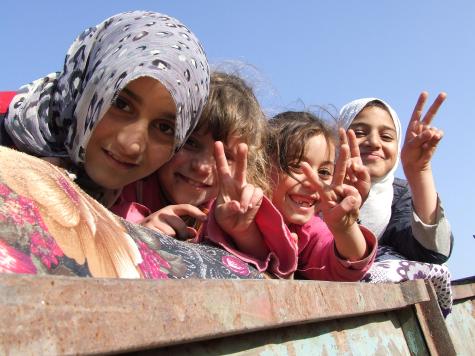
Sustainable Peace in the Middle East – A Better World for Everyone
The situation between Israel and Palestine is increasingly brutal, inhumane, and more dangerous by the day. This senseless and preventable escalation is causing widescale unnecessary suffering and destruction.
Both sides must start engaging in diplomacy and serious peace negotiations. Substantial international pressure from the U.S., the EU, and other influential nations needs to be ramped up as critical observation from the sidelines does little to deescalate tensions.
Whilst many governments are committed on paper to a two-state solution and compliance with international law, the reality is that most Western governments support Israel's policies and are reluctant to step in as neutral mediators.
Regarding the BDS movement, the entire EU has guidelines in place for the labelling of settlement products from the occupied Palestinian territories. However, the project has failed to be consistently enforced, likewise the implementation of effective sanctions on Israel.
Better World Info stands against all forms of destruction, violence, and terror - both Israeli and Palestinian. This decades-long cycle of violence must come to an end. Israel's right to exist should be fully respected, likewise, a dignified, peaceful, and prosperous life where human rights are upheld must become the norm for Arab Israelis and the people in the West Bank and the Gaza Strip.
We demand an end to all forms of fighting and a path to be forged for diplomacy, non-violence, tolerance, and understanding. This is the only direction which will lead to sustainable peace and the end of suffering in the Middle East. So long as nations standby and watch, we too are complicit in the horrific situation unfolding before us.
"The ultimate tragedy is not the oppression and cruelty by the bad people but the silence over that by the good people." - Martin Luther King, Jr.
Author: Rachael Mellor 25.10.23, updated 21.08.24 licensed under CC BY-ND 4.0 based on the article by Maximilian Stark 20.10.23
For more information on the Israel – Palestine conflict see below ⬇️
Info on ISRAEL & Palestine
- Israel & Palestine News[241]
- Links[14]
- Background[93]
- The PEACE process ?[769]
- Hot Topics ! - Palestine
- WEST BANK Annexation[226]
- BOYCOTT, Divestment & Sanctions - BDS[852]
- SOLIDARITY with Palestine & Gaza Flotilla[1421]
- HUMAN RIGHTS Abuses - 4,000 links
- Israel as a colonial power[29]
- ISRAEL-HAMAS WAR 2023[29483]
- Nuclear Weapons
- Maps[16]
